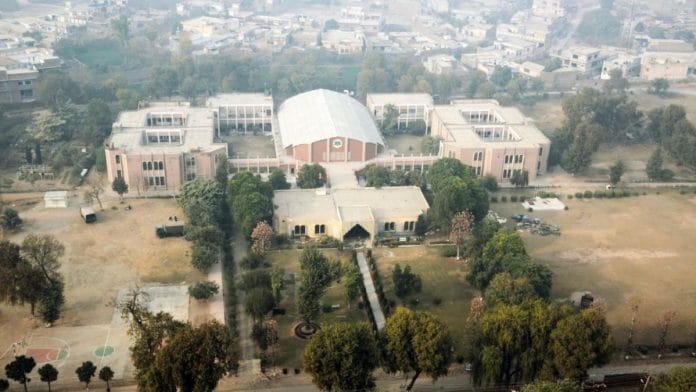New Delhi: On the tenth anniversary of the attack on the Army Public School in Peshawar—one of the deadliest in the country’s history, that saw 132 children die—Pakistan is questioning the progress made vis-a-vis combating terrorism.
On 16 December 2014, six gunmen from the Tehrik-e-Taliban Pakistan (TTP) attacked the Army Public School in Peshawar, killing 149 people, including 132 children aged eight to 18. The attackers, who were foreign nationals—one Chechen, three Arabs, and two Afghans—opened fire on staff and students. Pakistan’s Special Services Group (SSG) launched a rescue operation, killing the attackers and saving 960 people. In response, Pakistan implemented the National Action Plan (NAP) to combat terrorism.
Ten years on, Business Recorder editorial expressed disillusionment with the state’s efforts, noting that Pakistan’s approach to counterterrorism has been “selective”.
“The will to confront terror networks has been selective, and powerful actors have continued to prop up dangerous extremist elements whenever it has served their purpose,” the editorial stated. It further criticised the political class for prioritising power struggles over the pressing issue of combating terrorism.
A similar sentiment was echoed by Dawn, it lamented the slow and inconsistent implementation of the National Action Plan.
The editorial pointed out, “Countering extremism may take a generation or two — the seeds planted during the Zia dictatorship have today turned into tall trees bearing bitter fruit. Yet the state must fully commit itself to these efforts if Pakistan is to be rid of terrorism and fanaticism. Sadly, the state appears more enamoured of silencing the political opposition; counterterrorism does not appear high on its list of priorities.”
Also read: ‘Pakistanis can’t take a joke’—Anwar Maqsood’s comment on Navy raises demand of his ban
Then and now
A Dawn investigation on the effectiveness of NAP found that its implementation was flawed leading to ‘limited success’.
The NAP, which promised sweeping reforms ranging from curbing terrorist financing to regulating religious seminaries, has faced significant challenges in execution. While certain measures, such as military operations and the resumption of executions for terrorism-related crimes, were swiftly enacted, the lasting impact has been limited.
Pakistani security analysts, who were quoted in the report, said that NAP’s execution suffered from poor oversight. Although several ministerial committees were established to monitor progress, they were largely ineffective, and decision-making was shifted to federal and provincial apex committees. The plan’s design also overlooked the unique security needs of individual provinces. However, it was also the first time Pakistan implemented a formal counterterrorism policy with a structured framework.
The resurgence of militancy in Pakistan has been stark. According to the Pakistan Institute for Peace Studies (PIPS), militant attacks surged by 17 per cent in 2023, marking the third consecutive year of increasing violence. The rise in attacks, including suicide bombings, has been especially pronounced in the northwestern and southwestern regions, areas bordering Afghanistan. Analysts point to the collapse of a fragile truce with the TTP in 2022 as a key factor in the rise of militancy. The TTP, emboldened by the Taliban’s return to power in Afghanistan, has launched a series of attacks targeting both military and civilian sites in Pakistan.
Meanwhile, in 2023, Pakistani authorities took notable steps to combat terrorist financing, completing an updated National Risk Assessment (NRA) that incorporated components related to terror financing, according to the United States (US) State Department’s report. Despite these efforts, the State Department highlighted that Pakistan continued to face significant risks related to money laundering and terrorist financing in the past year.
The sentiment was perhaps captured best in the comment by former Pakistan senator Afrasiab Khattak who wrote on X: “The fault, dear Brutus, is not in our stars but in ourselves, in the state policy that plays good/bad Taliban for fighting mercenary wars.”
(Edited by Theres Sudeep)







Counterterrorism is not a priority because ‘counter’ is not a priority.